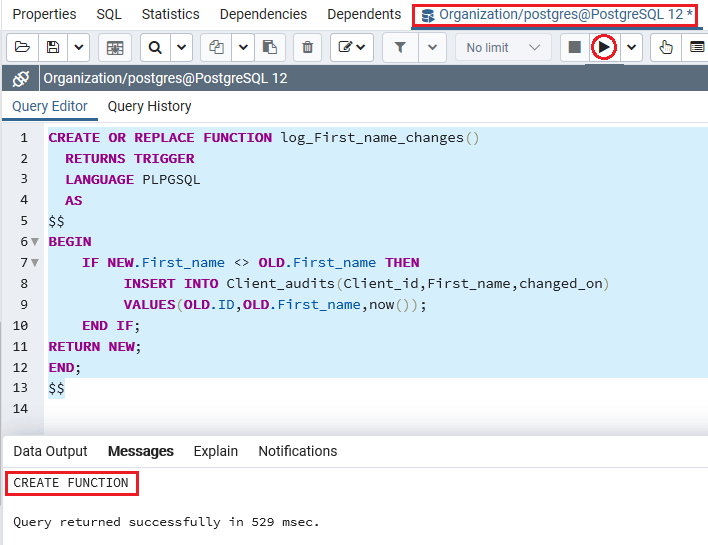

Postgres=# Setbackslash_quote = safe_encoding - When client_encoding does not allow the backslash ````` to appear in multi-byte characters (most character sets ````are single-byte representations'), it allows the use of ```escape single quotation marks'.Ģ. LOCATION: check_string_escape_warning, scan.l:1483 HINT: Use '' to write quotes in strings, or use the escape string syntax (E'.').

WARNING: 22P06: nonstandard use of \' in a string literal Postgres=# set backslash_quote = on - allow escape' Postgres=# set standard_conforming_strings=off Postgres=# set backslash_quote = off - escape is not allowed postgres=# set backslash_quote = off - escape is not allowedĮRROR: 22P06: unsafe use of \' in a string literal Otherwise, when standard_conforming_strings=on, will be treated as a normal string.Įxample 1: When standard_conforming_strings=on, is treated as a normal string postgres=# set standard_conforming_strings=on Įxample 2: The configuration of backslash_quote works when standard_conforming_strings=off or using the E''notation. Note that the configuration of backslash_quote only works when standard_conforming_strings=off or when E''is used. This parameter only affects the handling of non-standard-conforming literals, including escape string syntax (E'.'). Note that in a standard-conforming string literal, \ just means \ anyway. The allowed values of backslash_quote are on (allow \' always), off (reject always), and safe_encoding (allow only if client encoding does not allow ASCII \ within a multibyte character). This risk can be prevented by making the server reject queries in which a quote mark appears to be escaped by a backslash.
Postgresql replace special characters code#
If client-side code does escaping incorrectly then a SQL-injection attack is possible. However, use of \' creates security risks because in some client character set encodings, there are multibyte characters in which the last byte is numerically equivalent to ASCII \. The preferred, SQL-standard way to represent a quote mark is by doubling it ('') but PostgreSQL has historically also accepted \'. This controls whether a quote mark can be represented by \' in a string literal. Why should we control the escape single quotation marks?īecause this may introduce the risk of SQL injection, such as when the end customer puts at the end, the single quotation mark can be escaped, and the string terminator that should have been typed normally does not exist. (Related to SQL injection) Is backslash escape single quotation marks allowed?īackslash_quote = on allows, off does not allow, safe_encoding (only when client_encoding does not allow backslash\ to appear in multi-byte characters (most character sets are single-byte representations), then escaped single quotes are allowed.) Three configuration controls are escaped as follows:ġ.

What's wrong with entering UNICODE value in Greenplum's JSON? Is there the same problem in PostgreSQL? Enter in UNICODE format, support all character sets? What character sets are currently supported and what CODE range are supported?Ĩ.
Postgresql replace special characters how to#
How to input strings in the form of UNICODE.ħ. Why is there a risk of SQL injection when escaping single quotes? What parameters of the database can control this risk? What parameters can be warned?Ħ. Is backslash an escape character in the SQL standard? How does PostgreSQL use backslash escape? How about the writing format?ĥ. How to enter single quotation marks in a string.Ĥ. How to input special characters in a string, such as carriage return.Ģ. Through this article, you can understand:ġ. PostgreSQL, json, string escape, unicode, SQL injection, backslash_quote, escape_string_warning, standard_conforming_strings


 0 kommentar(er)
0 kommentar(er)
